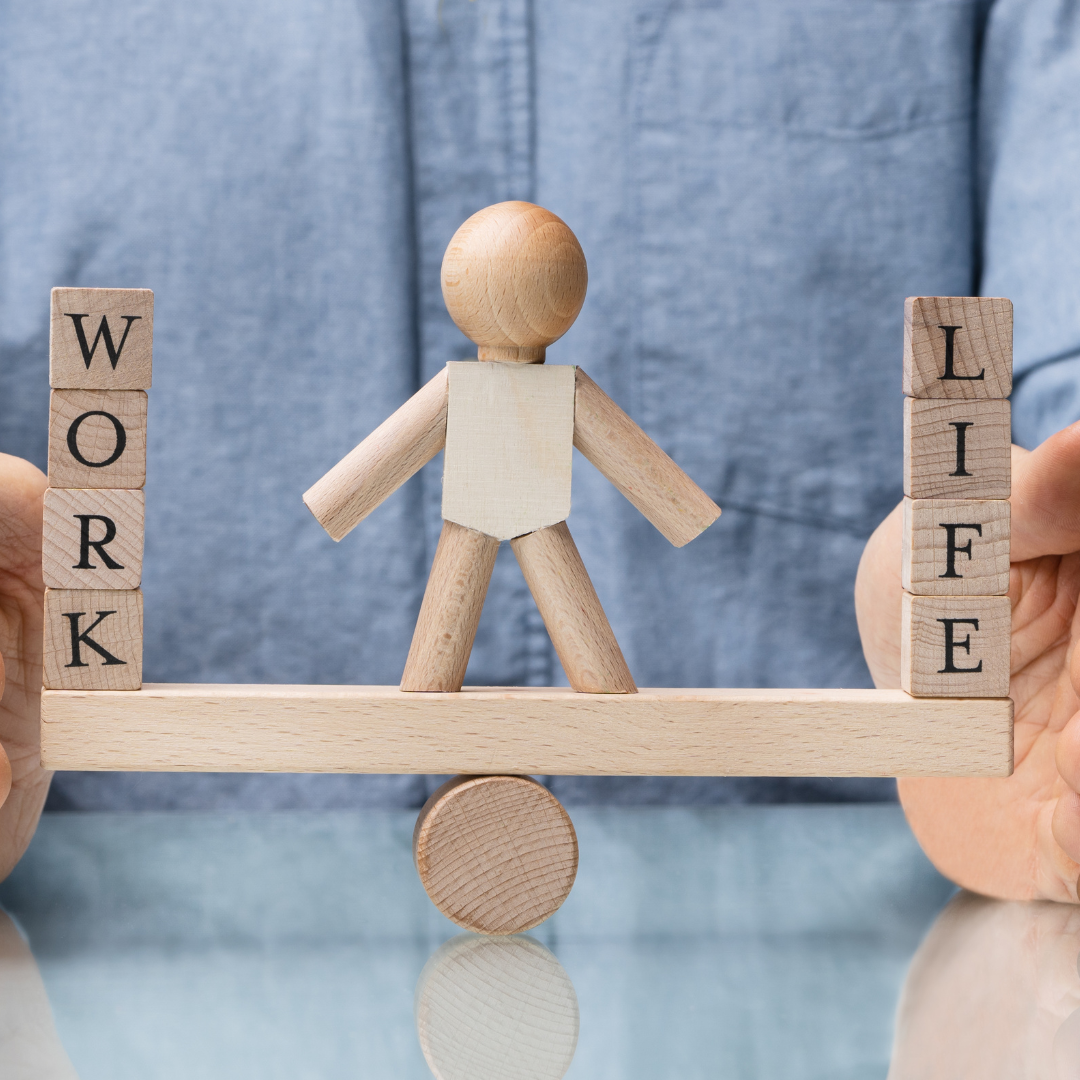Stop Trying to Balance Work and Home Life. Here's Why

Do you ever feel like you're juggling too many balls, trying to give equal time to both work and home, but ending up feeling guilty and stretched too thin? You're not alone. Many people struggle with this, and it can be exhausting. But what if I told you that you don't need to balance work and home life equally? Instead, there's a better way to manage your time and energy that can reduce stress and make you feel more in control.
The Problem with Balance
The idea of balancing work and home life suggests that we should give equal time and attention to both areas. But this often leaves us feeling guilty and stretched too thin. We worry about spending too much time at work and not enough with our families. This constant tug of war leads to more stress and burnout.
True balance isn't about giving everything equal time. It's about integrating your work and home life in a way that works for you. Imagine your time and energy as a pie. No matter how you slice it, you only have so much to go around. If you take a big slice for work, there's less left for home, and vice versa. The key is to move your time and priorities around to fit your needs without feeling guilty.
A New Way to Think About Balance
Instead of trying to balance everything equally, focus on integrating your work and home life. Some days, work needs more attention, and other days, your family does. That's okay because it's not about splitting your day evenly. It's about making sure that over time, everything gets what it needs. This approach can reduce stress and help you feel more in control.
Creating margin in your life is a big part of this. Margin is like a buffer zone—extra space in your life that allows you to switch from work mode to home mode without dragging one into the other. For example, taking a short walk after work can clear your mind and help you be more present with your family when you get home.
Practical Steps to Integrate Work and Home Life
Here are five practical steps you can take to start integrating your work and home life:
1. Prioritize What Matters Most
Take a step back and think about what's most important to you at work and at home. What are the main things that need your attention this week? Write these down so you have a clear picture of what needs your focus. Use a planner or scheduling app to block out time for both work and home activities. For instance, if you know you have to work overtime this week, plan time for important family moments when you're home. By planning ahead, you can make sure you're giving attention to both areas without letting one overshadow the other.
2. Create Margin
Creating margin means giving yourself some breathing room between work and home activities. Build in buffer times between your shifts and family time. For example, if you finish your shift at 5 PM, don't schedule anything at 5:30 PM. Instead, give yourself some time to decompress. This could be a simple 15 - 30-minute buffer where you can relax and clear your mind. Use transition rituals to help switch gears mentally from work to home. This could be a brief walk around the block, a quick workout, or a relaxing shower. These small buffers help you be more effective and present in both areas of your life.
3. Communicate with Your Family
Have an open discussion with your family about your work schedule and commitments. Explain the demands of your job and why you sometimes need to prioritize work. Let them know your schedule ahead of time so they aren't caught off guard when you have to stay late or be on call. This transparency helps reduce misunderstandings and sets realistic expectations. Even if you can't be home for dinner every night, plan special activities on your days off, like family game nights or outings. The key is to make the time you have together meaningful.
4. Be Present
When you're with your family, make a conscious effort to be fully present. This means putting away distractions like phones, emails, and even work-related thoughts. Set your phone to silent or leave it in another room so you're not tempted to check it every few minutes. Spend time playing with your kids and really listen to what your family members are saying. This shows them that they are your priority during this time and helps create meaningful connections. At work, focus on your job, knowing that you've set aside time for your family later. By being present in both work and home environments, you can perform better and enjoy a more relaxed personal life.
5. Practice Self-Care
Make time for activities that recharge you, like hobbies, exercise, or quiet time. It's easy to put yourself last when you're busy with work and family, but taking care of yourself is essential. Whether it's going for a run, reading a book, or spending time on a hobby you love, these activities help you relax and recharge. Schedule these self-care activities into your week just like you would any other important appointment. This way, you're more likely to stick to them and get the break you need. Taking care of yourself helps you be more present and effective in both work and home life.
Conclusion
Life's like pie—there's only so much to go around. Make the best of it and enjoy it while you can. By integrating your work and home life, prioritizing what matters most, creating margin, communicating with your family, being present, and practicing self-care, you can reduce stress and feel more in control of your life. Stop trying to balance everything equally and start focusing on what really matters. You'll be happier and more fulfilled in the long run.
Listen to Episode 14 here.





